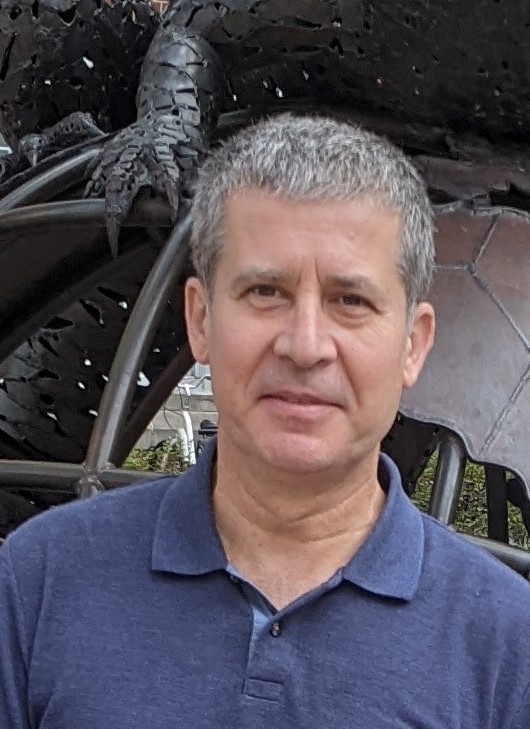
Haldun Aytug
Haldun Aytug is Karl F. and Nancy J. Flammer Professor of Information Systems and Operations Management at the Warrington College of Business. His research is in machine learning and its applications in electronic commerce and healthcare. Haldun earned his Ph.D. in Decision and Information Sciences from the University of Florida. He is a member of the Institute for Operations Research and Management Science, and Association for Computing Machinery. He serves on the editorial review boards of Decision Support Systems and Journal of Business Analytics.
Artificial Intelligence (AI) is already part of our daily lives. Learning what AI is, and what it can and cannot do is important so that we- as students, educators, professionals, consumers and citizens – can influence how it is further developed and used in the future. - Haldun Aytug
Warrington College of Business
Shaun Boren
Shaun Boren came to UF in 2017 to direct the new Office of Assessment and Research in its mission to champion a culture of evidence-based decision making for Student Life. Prior to this role Shaun served the University of West Florida for 12 years in a progression of experience including creating the Outdoor Adventures program, supervising all Recreational Sports programming, instructing undergraduate and graduate courses, and managing assessment initiatives for Student Affairs. His leadership style and strategies for building assessment capacity draw from his bachelors in animal behavior, masters in experiential education, and doctorate in physical education and health.
Artificial intelligence is a powerful set of tools in timely response to an era of being data rich and analysis poor. With considered design, AI complements and supplements the application of our human intelligence to better understand increasingly complex data. Data literacy is of increasing importance regardless of industry, so our graduates should at least be critical consumers of data, if not co-creators of solutions. - Shaun Boren
Division of Student Life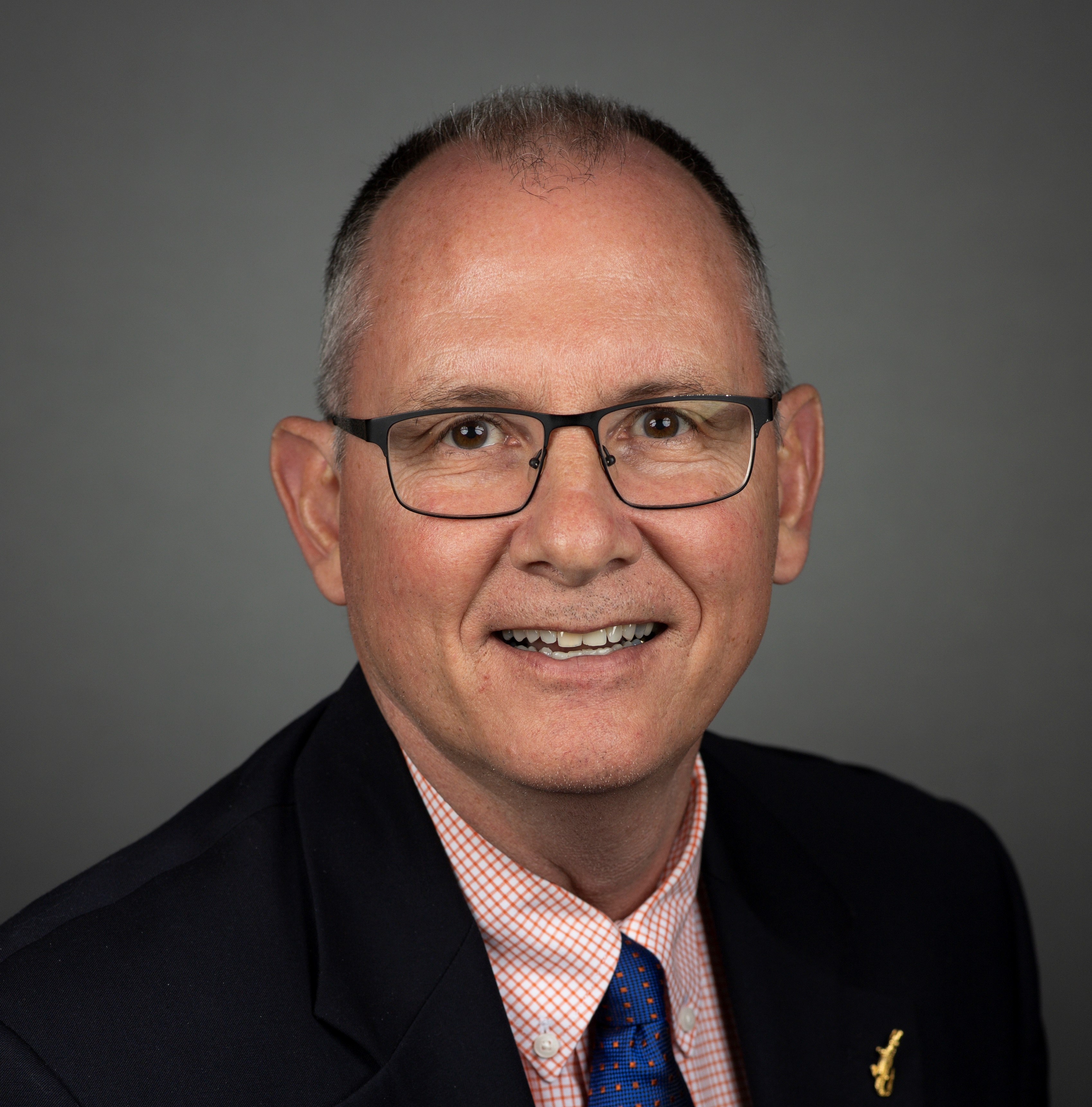
Joel H. Brendemuhl
Joel H. Brendemuhl, PhD, is a Professor and Associate Dean with the University of Florida’s College of Agricultural and Life Sciences. He oversees both undergraduate and graduate curriculum and its development, is the Assessment and Accreditation Coordinator for the college, facilitates recruitment and enrollment, and oversees undergraduate and graduate student advising and advisors. Joel’s background includes serving as the Department of Animal Sciences Assistant Chair, and stints as the department’s Undergraduate and Graduate Coordinator. He earned both his B.S. in Animal Sciences (1980) and M.S. degree in non-ruminant nutrition (1982) from North Dakota State University. In 1985, he completed the Ph.D. degree at the University of Nebraska-Lincoln in swine nutrition. Upon completion of the Ph.D., he began as an Assistant Professor in the Department of Animal Sciences at UF teaching nutrition and swine related courses and conducting research in swine nutrition. He has spent his entire professional career at UF and obtained full professor in 1999.
Artificial intelligence is nothing new, but its applications, tools and techniques are now intertwined in almost every aspect of our life. To me, the hope of artificial intelligence is in making life on Earth better for all humanity. - Joel H. Brendemuhl
College of Agricultural and Life Sciences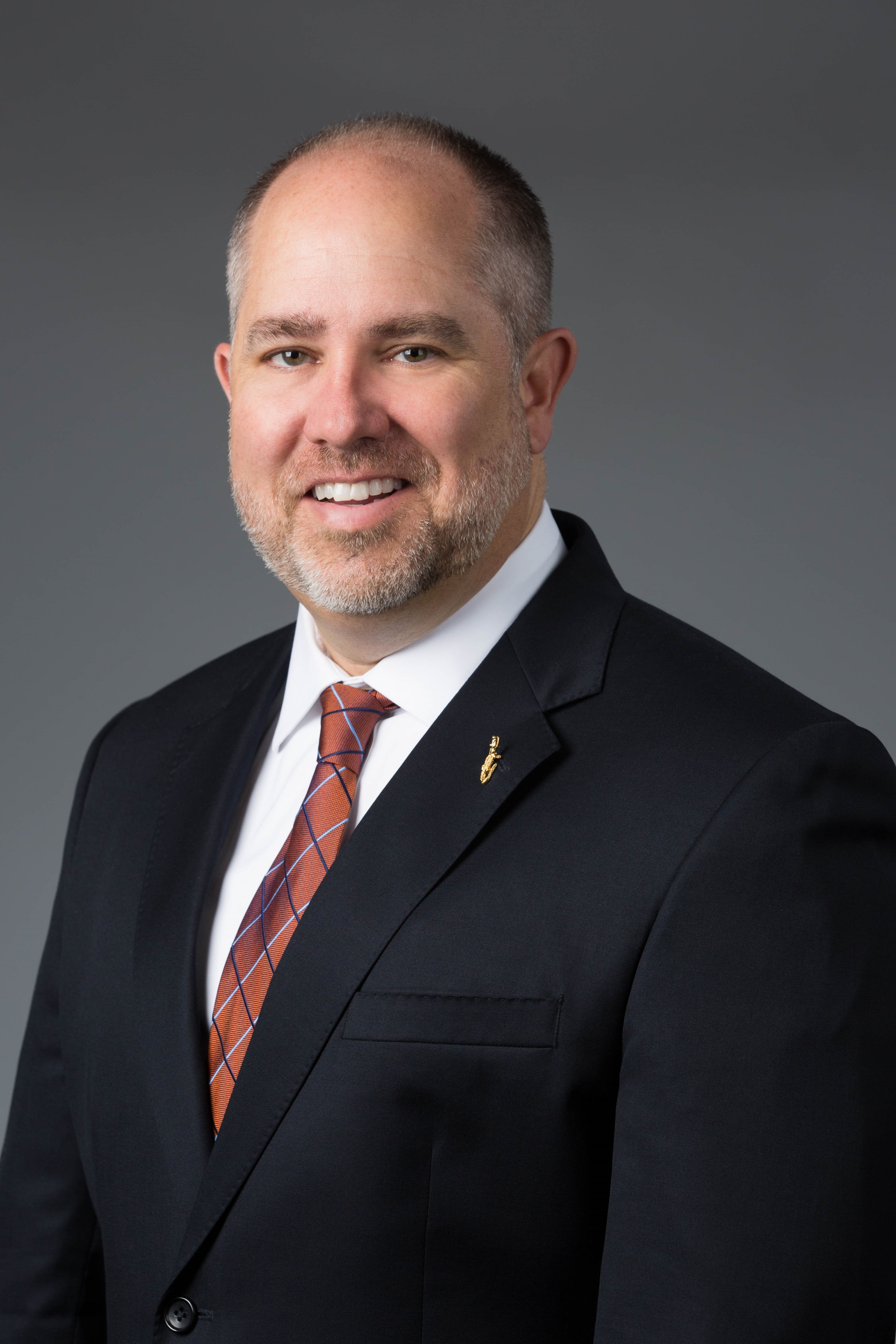
Jeff Citty
Jeff Citty serves as the founding director for the Innovation Academy and has over twenty years of experience in higher education in building programmatic solutions to help solve issues in higher education. He received his Ed.D. in Higher Education Administration, focusing his dissertation on retaining engineering students through first year extended bridge programs. Dr. Citty provides vision, leadership and strategic direction in the development and attainment of the Innovation Academy priorities. As the founding director of the program he oversees all curricular and co-curricular aspects of the program as well as building the institutional infrastructure for the program.
Artificial Intelligence enhances the speed, precision and effectiveness of human efforts and can cut through an abundance of data for valuable insights. - Jeff Citty
Innovation Academy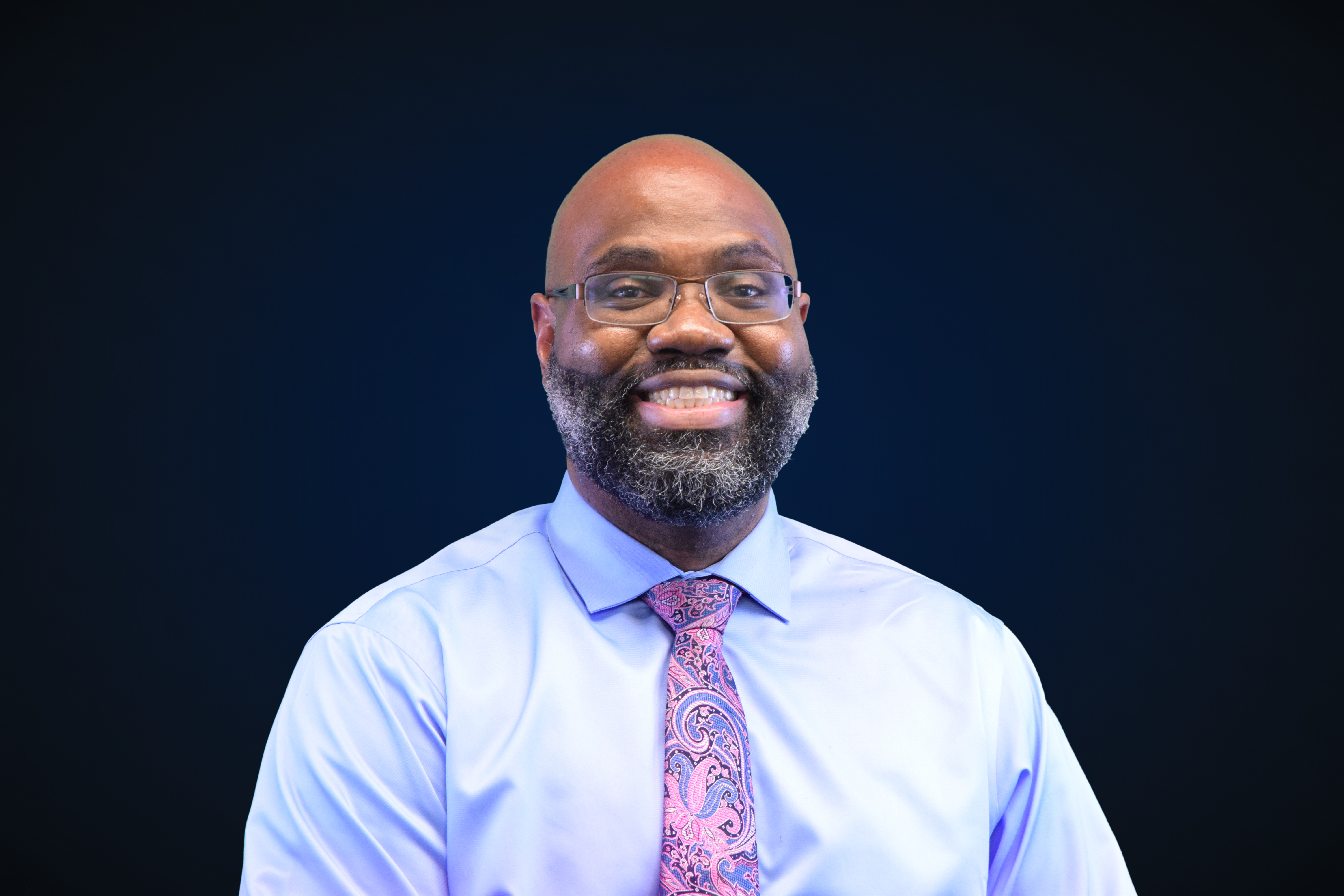
David Canton
David Canton is Director of African American Studies Program and Associate Professor of History at the University of Florida. He graduated with a B.A. in History from Morehouse College, received his M.A. in Black Studies from The Ohio State University and PhD in history from Temple University. Professor Canton is the author of Raymond Pace Alexander: A New Negro Lawyer Fights for Civil Rights in Philadelphia. The biography examines Alexander’s role in the civil rights struggle in Philadelphia from the New Negro to the Black Power Era. His book won the 2011 W.E.B. DuBois book award from the Northeast Black Studies Association. Canton is working on two book projects. He is a co-authoring a book with Joe Madison titled Radio Active: My Memoir of Talk and Activism. Joe Madison, is a civil rights activist and radio talk show host and he is writing a biography titled Biography of a Black Scholar: Lawrence Dunbar Reddick. In 1939, Reddick received his Ph.D. in history from the University of Chicago and is most widely known for his 1937 Journal of Negro History essay titled “A New Interpretation for Negro History,” and Crusader Without Violence (1959), the first biography of Martin Luther King, Jr.
His articles and essays have appeared in Western Journal of Black Studies, Pennsylvania History, Journal of Civil and Human Rights, Reviews in American History, and Journal of Urban History. He teaches courses on the Black Freedom Struggle, Civil Rights Struggle in the North, History of Hip Hop Music and Culture, and Introduction to African American Studies. His African American history class was featured on C Span American History Television. http://www.c-span.org/video/?315255-1/african-americans-1920s and he has published short essays on racism, poverty, and the lack of African Americans players in major league baseball. “Where are All the Black Baseball Players’? U.S. News and World Report, July 10, 2017. https://www.usnews.com/opinion/op-ed/articles/2017-07-10/3-reasons-for-the-declining-percentage-of-black-baseball-players-in-the-mlb. He joined the University of Florida’s Department of History after teaching at Connecticut College in the Department of History between 2003-2020.
Understanding and interpretation data are important skills that students need to solve systemic problems. AI will play a major role in African American Studies because it exposes students to the impact of implicit bias technology, but students can learn to use AI to create social and cultural equity. – David Canton
College of Liberal Arts & Sciences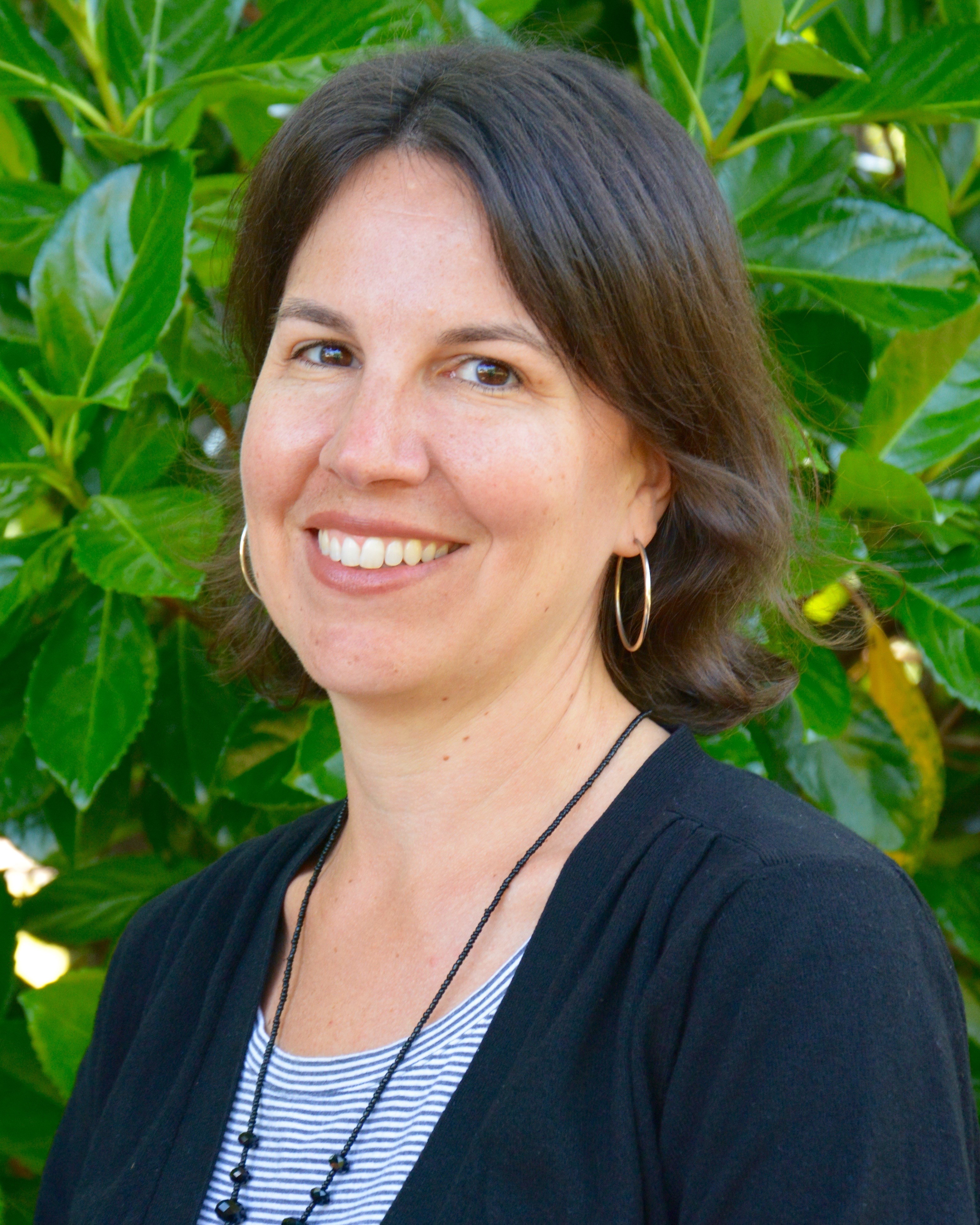
Elayne Colón
Elayne Colón is an Associate Scholar and has served as the Director of Assessment and Accreditation in the College of Education at the University of Florida since 2006. She has contributed to numerous university committees, including serving on the General Education Committee since 2014. Dr. Colón is consistently involved in state and national service, including as a member of the Florida Education Practices Commission and on the Accreditation Council for the Council for the Accreditation of Educator Preparation. With a background in school psychology, her scholarly interests include assessing quality educator preparation and examining issues related to accountability and accreditation in higher education.
The use of AI expands what is possible in the workplace, enables innovations beyond our wildest dreams, and allows for a deeper understanding of data at all levels. Employed with great care and always mindful of ethical practice, AI can improve nearly every aspect of our daily lives. - Elayne Colón
College of Education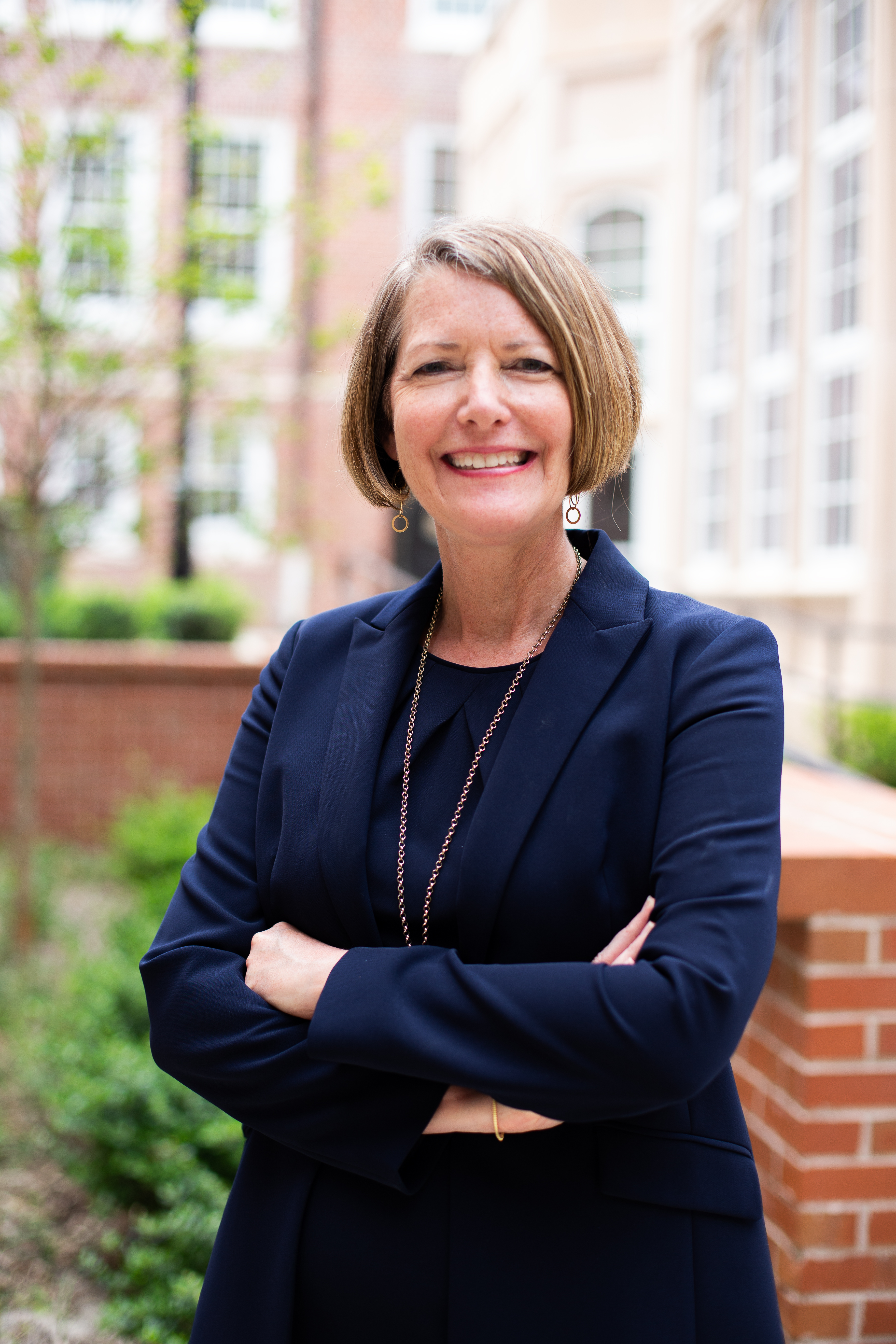
Nancy Fichtman Dana
Nancy Fichtman Dana, Ph.D., is Professor of Education in the School of Teaching and Learning and Distinguished Teaching Scholar at the University of Florida. Her research focuses on educator professional learning through inquiry. She has published eleven books and over 100 articles and book chapters on the topic, and has worked extensively throughout her career in supporting schools, districts and universities in implementing powerful programs of job-embedded professional development through inquiry across the United States and in several countries, including China, South Korea, Belgium, Portugal, The Netherlands, Slovenia, Estonia and Spain.
As an educational researcher, I am always looking for new ways to gain insights into the complexities of teaching and learning. AI has amazing potential to provide greater insights to both researchers and practitioners by using untapped educational data with the ultimate goal of improving learning outcomes for all students. – Nancy Dana
College of Education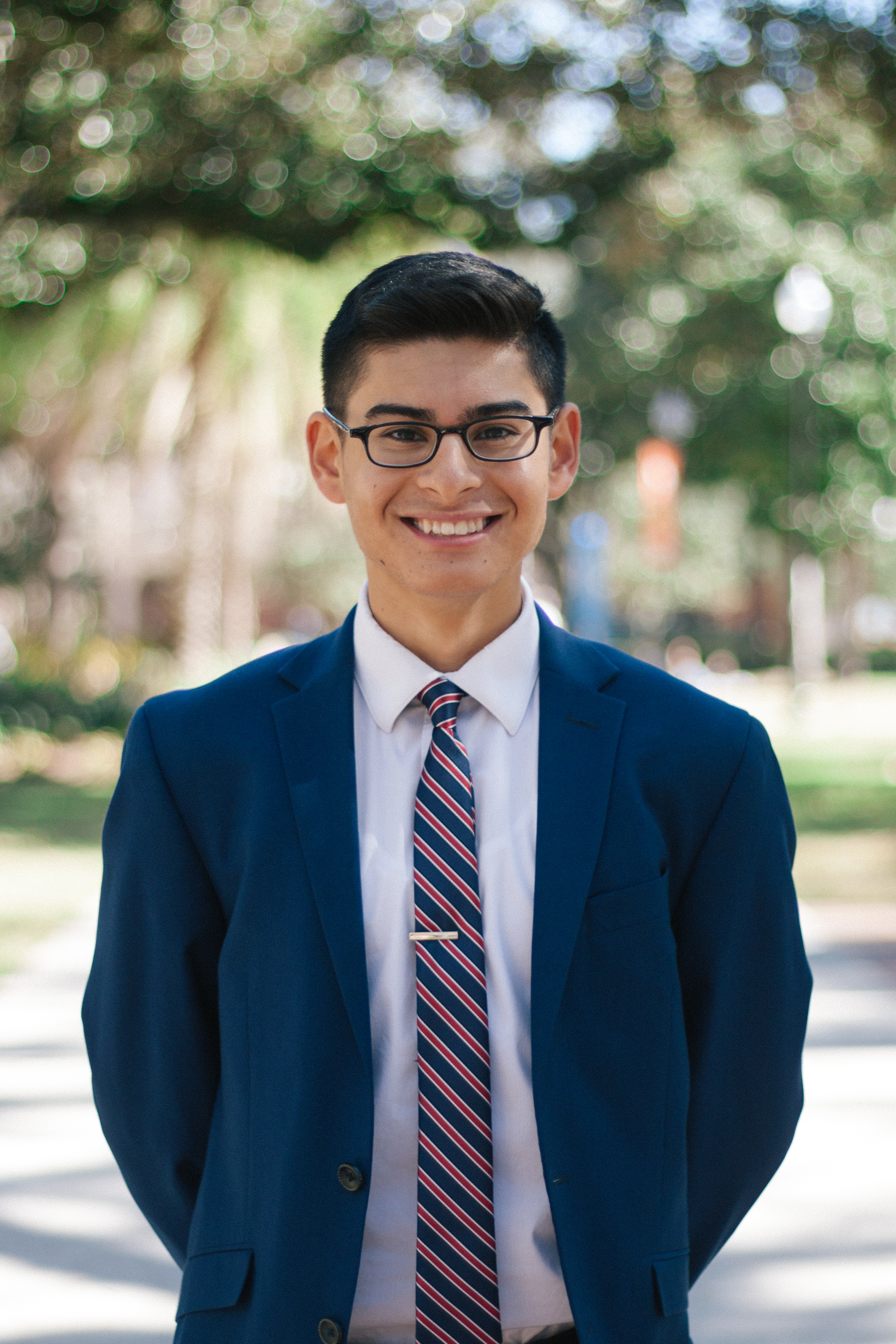
Charles B. Drucker, Student Member
Charles B. Drucker is a current Reitz Scholar studying economics on the pre-medical track at the University of Florida. Apart from his involvement in both health disparities and physiological research at the university, Mr. Drucker is actively invested in both the local and state community, serving as a Research and Policy Fellow within the Florida House of Representatives and a mentor to Gainesville students within The Education Foundation of Alachua County. In the future, he seeks to play a leading role in the delivery of healthcare as a physician, with professional aspirations centering at the intersection of economics, public policy, and medicine.
One of the greatest areas of continued innovation for artificial intelligence (AI) has been in healthcare. As we continue to invest further in the development of new AI-based technologies —many of which have already served as the basis for the advancement of new treatment modalities such as telemedicine, robotic-assisted surgery, and radiographic analysis—the potential for AI to change the ways in which we view the healthcare system and its stakeholders only becomes more promising. As an aspiring medical professional, being a part of an effort to examine the impact and recognize the capabilities of AI technology cannot be overstated. - Charles B. Drucker
Reitz Scholar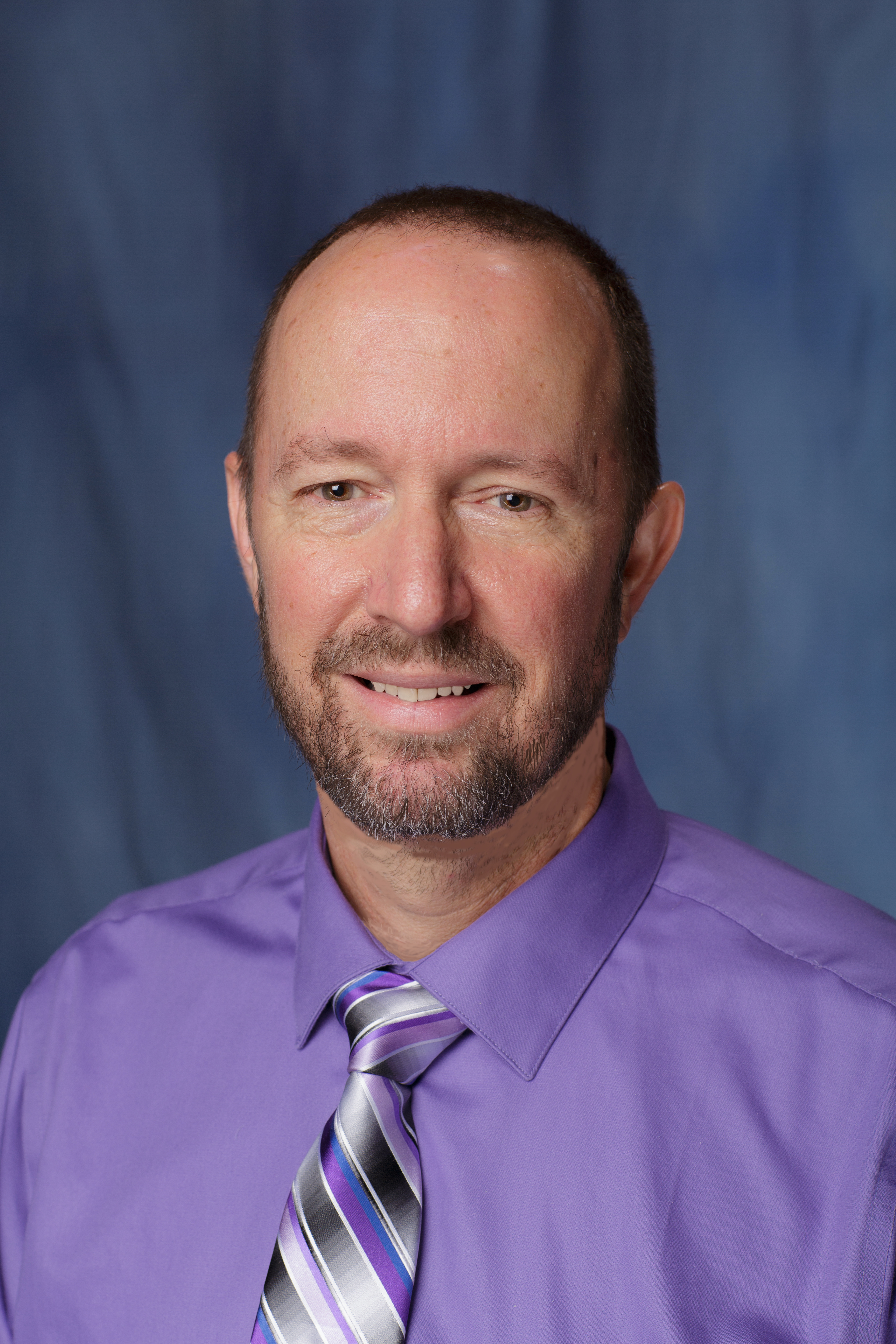
George Hack
George Hack, PhD, MEd, is the UF College of Public Health and Health Professions’ Associate Dean for Educational Affairs. Dr. Hack received his PhD in Educational Technology from the University of Florida and currently provides administrative leadership to academic programs at the undergraduate, graduate, and professional levels, including program evaluation, academic advising, and student services.
Dr. Hack’s research and development interests have focused upon pedagogical approaches, blended learning applications, and the interactions of educational technologies, teaching methods, and student attributes as they impact levels of learning. My recent investigations have included the following questions: how methods of instruction can change student attitudes toward safety in a clinical setting, how technology can be utilized to improve clinical reasoning in a radiographic imaging course, and how mobile technologies can improve student performance in blended classrooms. Knowledge gained from this work include the development of better user interfaces for learners, improved teaching methods for improving problem solving and clinical reasoning, improved technology integration into instruction, and insights leading to better programmatic administration of instructional activities.
Increasingly, large data computing and machine learning are regarded as key to biomedical modelling, improving the health of populations, and advancing the health professions. AI for healthcare and public health also has the potential to be interventional through the evaluation of different what-ifs, or actionable strategies, like prevention, risk mitigation, and public health policy changes. – George Hack
College of Public Health and Health Professions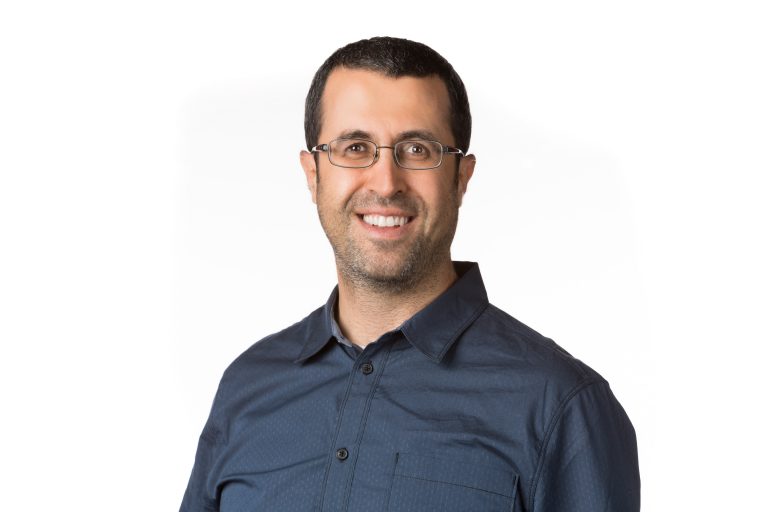
Youssef A. Haddad
Youssef A. Haddad is a Professor of Arabic Language and Linguistics and the Undergraduate Coordinator of the Arabic Language Program in the Department of Languages, Literatures, & Cultures. His research focus is on syntax, pragmatics, and their interface. In his research, he examines phrase and sentence structure of human language and investigates the social conditions on language use. He has published broadly on these topics. His publications include two books: Control into Conjunctive Participle Clauses: The Case of Assamese (Mouton de Gruyter, 2011) and The Sociopragmatics of Attitude Datives in Levantine Arabic (Edinburgh University Press, 2018). Dr. Haddad has also co-edited two volumes of Perspectives on Arabic Linguistics (Benjamins, 2016 & 1019). He is currently working on a textbook entitled Introduction to Arabic Linguistics (Wiley Blackwell).
In Linguistics, a special significance is often given to the naïve native speaker; that is, to the speaker who uses her language daily and who has an intuition about it, but who is not familiar with linguistic terminology and complex linguistic analyses as a linguist would be. My sense is that very soon, if not already, most of us will have a relationship with AI that is very similar to the relationship that a naïve native speaker has with language. AI is bound to become an essential component of our daily activities. We may not know how it works exactly, but we will use it nonetheless. The importance of AI resides in its inevitability. My hope is that it will continue to serve as a tool that enhances our performance and productivity, and that we will not allow it to take over our life. - Youssef A. Haddad
College of Liberal Arts and Sciences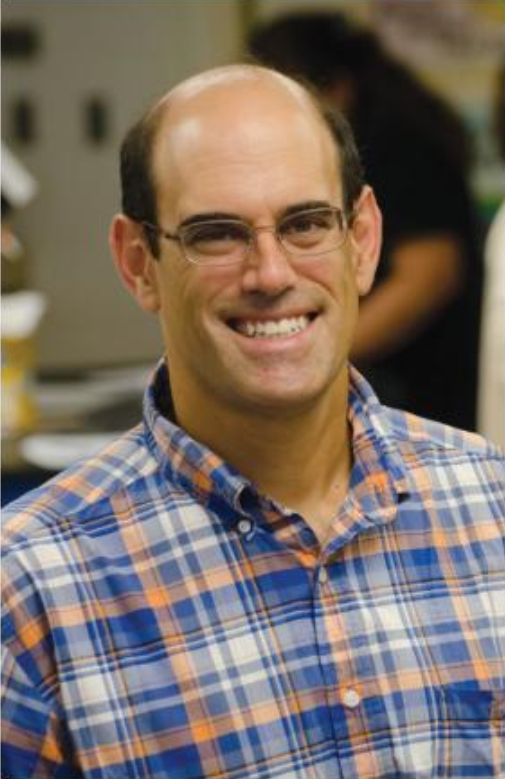
Selman Hershfield
Prof. Selman Hershfield is a condensed matter theorist in the Physics department. He has received a NSF National Young Investigator award, a Cottrell Scholars award, and been both CLAS Advisor of the year and Teacher of the year. Presently, he is serving as the Undergraduate Coordinator in the Physics department, CLAS College Assembly Chair, and as a member of the Quest leadership team. He has bachelor’s degrees in Mathematics and Physics from the University of Maryland and a Ph.D. in Physics from Cornell University.
AI is important because it is increasingly an integral part of our society from search algorithms and social media recommendations to tools for discovery and analysis to voice recognition and deepfakes to making recommendations or actual decisions. An educated citizen must understand AI's uses and impacts to make informed decisions in their life. - Prof. Selman Hershfield
College of Liberal Arts & Sciences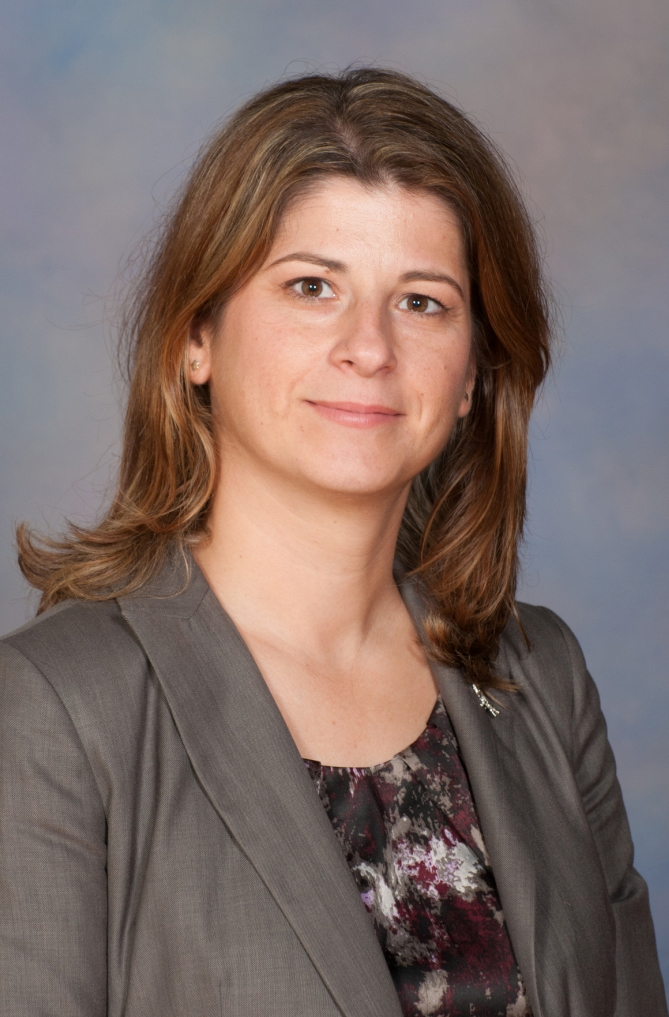
Kyriaki (Kiki) Kaplanidou
Kyriaki (Kiki) Kaplanidou, Ph.D., is Professor at the University of Florida, Department of Sport Management. Dr. Kaplanidou is the Director of Innovative Research Initiatives in Sport Events (i-Rise) lab at the University of Florida. Her main research interests relate to the sport event consumer behaviors and the evaluation and management of sport event legacy outcomes for the quality of life of residents of host cities. Her findings suggest the importance of socio-cultural programs embedded in the planning of sport event to improve residents’ quality of life. Dr. Kaplanidou’s research has been funded by the International Olympic Committee, the Athens Marathon (Greece), and Qatar University.
AI is a tool that can capitalize on the large amount of consumer data that is created and provide some useful feedback regarding choices of products and services, which ultimately will help organizations to make better strategic decisions.
Similarly in education, the role of AI can be critical in predicting student performance and guide interventions early in the course delivery.
With technology advancing as fast as it is right now, AI will be the platform to be able to make sense of all technological data that are created from consumers using these new technologies and should assist (in an ethical manner) with the improvement of services. - Kyriaki (Kiki) Kaplanidou
College of Health and Human Performance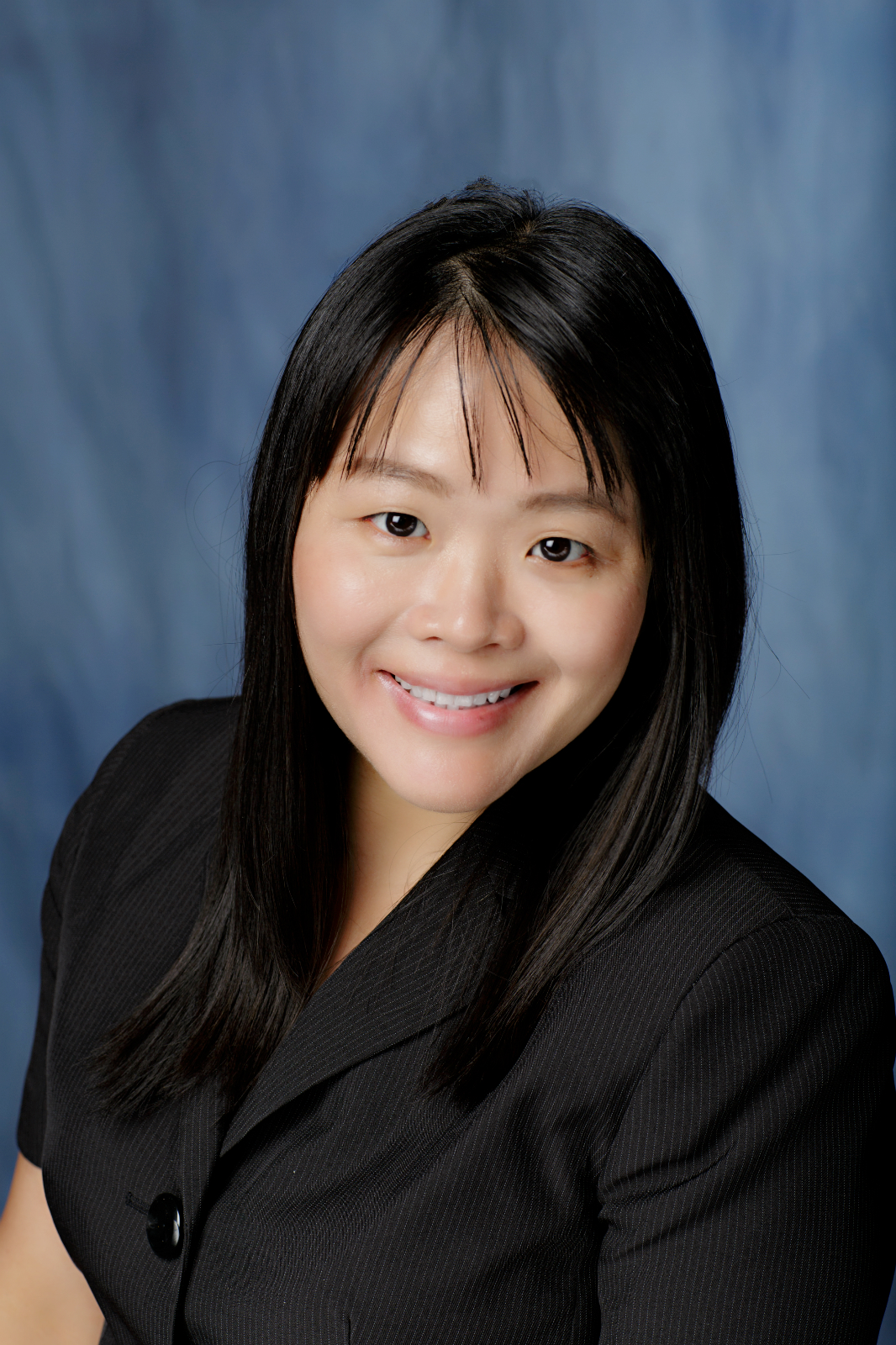
Wei-Hsuan Jenny Lo-Ciganic
Dr. Wei-Hsuan Jenny Lo-Ciganic is a pharmacoepidemiologist and Associate Professor in the Department of Pharmaceutical Outcomes and Policy at the University of Florida College of Pharmacy. Her research agenda focuses on drug safety and addiction. Dr. Lo-Ciganic has extensive experience applying advanced predictive analytics including machine learning and trajectory modeling with large healthcare datasets. She conducts research to develop risk prediction algorithms and tools, and practical intervention applications for use in real-world settings to improve health outcomes and patient care.
Artificial intelligence is more than just the next wave of high-tech. AI accelerates and advances research and clinical care in the pharmaceutical sciences and practice. AI is transforming the way we approach drug discovery, design clinical trials, recommend more personalized treatments and make medications safer. There are needs and opportunities to apply advanced predictive analytics and routinely collected real-world data to more accurately identify individuals at high-risk for adverse health outcomes and to better tailor treatment for individual patients. - Wei-Hsuan Jenny Lo-Ciganic
College of Pharmacy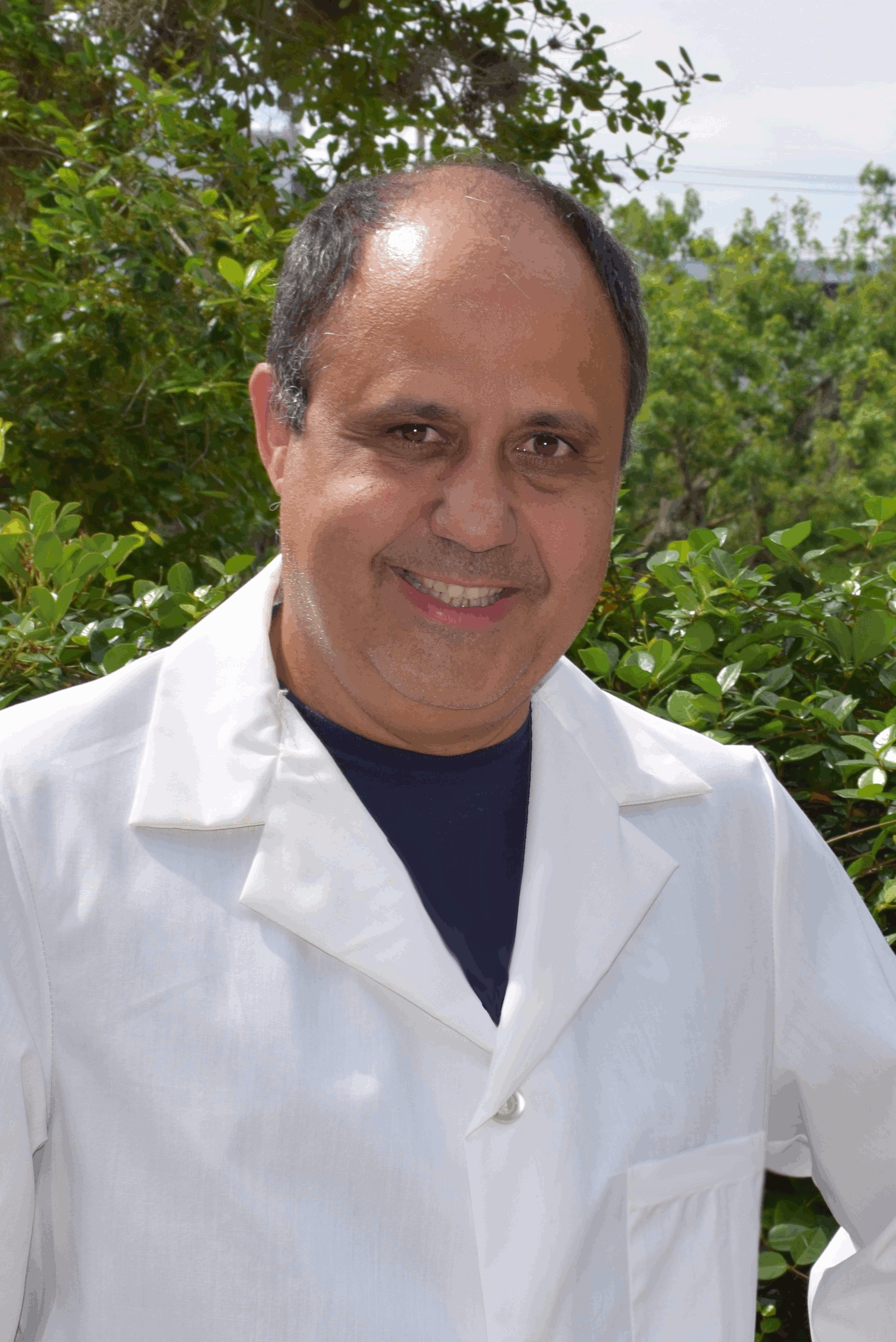
Jorge Frias-Lopez
My interest in studying interactions in complex microbial communities began years ago when working on a polymicrobial disease caused by a complex bacterial community that destroys corals worldwide. We performed a first rudimentary metatranscriptome analysis resulting in a paper that studied gene expression of the bacterial mat during infection. However, at that time, the technology did not allow for a deep coverage of the genes being expressed by the community. It was not until I worked at the Massachusetts Institute of Technology that I developed a methodology to study microbial community gene expression in situ. Our work resulted in the first comprehensive report on the expression profile of bacterial communities in open ocean waters. At the Forsyth Institute, I established a research program on studying the function of the components of the oral biofilm both in vivo and using a multispecies biofilm model. In 2016 I joined the Department of Oral Biology at the University of Florida, where I continue my work on the contribution of the oral microbiome in health and disease as well as to expand it to the host response under different conditions.
With an increase in the use of a variety of omics analyses to understand the role that the microbiome plays in health and disease, one of the most neglected areas of research has been integrating these different types of omics to generate models that could explain the outcome of certain pathogenic conditions. In this area, AI opens up the opportunity to integrate large databases from different omics results that could find models that underly the mechanisms by which the microbiome drives the outcome of a patient's health status. - Jorge Frias-Lopez
College of Dentistry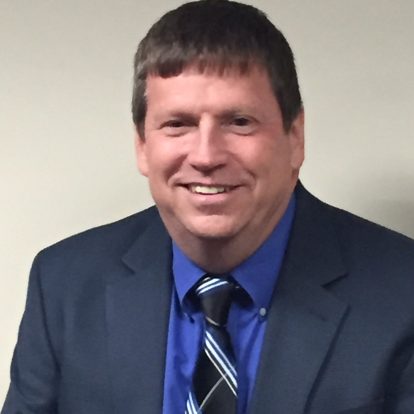
Christopher McCarty
Christopher McCarty is Associate Dean in the UF College of Liberal Arts and Sciences, a Professor of Anthropology and Director of the UF Bureau of Economic and Business Research. He has over thirty years of experience conducting research in Florida both at the state and local levels and under his direction BEBR has implemented the most comprehensive economic and demographic database on Florida. He is regarded as an expert on the Florida economy and often speaks to groups around the state on that topic. McCarty’s primary research focus is on social network analysis, and more specifically the analysis of personal networks. More recently he has developed a network science program funded through the UF Clinical and Translational Science Institute. McCarty and his colleagues use networks to understand what drives scientific collaboration and how interventions can be developed to incentivize new collaborations.
As automated data collection becomes more pervasive, we have increasing opportunities to develop better predictive models for research areas including human behavior, climate change and basic scientific discoveries. AI provides new and faster methods to develop these models and examine large and/or complex datasets in ways that were not possible or would take too long with existing technology. One of the more exciting aspects of AI for many disciplines in CLAS is the use of natural language processing to analyze text in new ways. This not only opens the world of AI to disciplines like philosophy, English and history, it provides unique opportunities for those disciplines that have tended to be siloed to collaborate with colleagues in other departments. AI has the potential to create new research areas, and with intuitive software interfaces, to equalize a methodological divide that creates barriers for collaboration between scholars in different disciplines. - Christopher McCarty
College of Liberal Arts and Sciences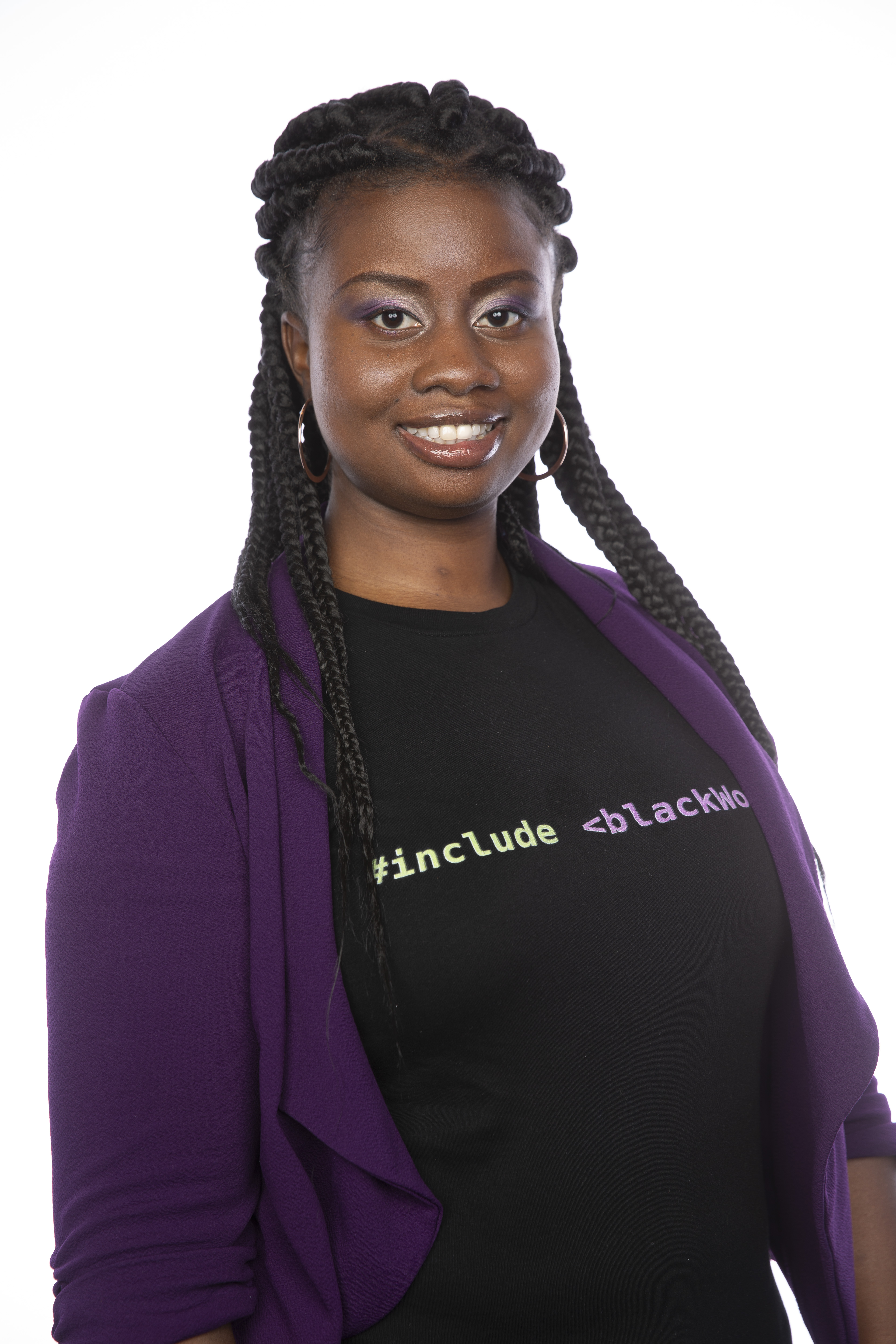
Dr. Kyla McCullen
Kyla McMullen earned her Bachelor of Science in Computer Science from the University of Maryland, Baltimore County (UMBC), where she was also a Meyerhoff Scholar. She earned her Masters and Ph.D. degrees in Computer Science and Engineering from the University of Michigan (2007-2012). While earning her Ph.D. she was also a faculty member at Wayne State University in Detroit, Michigan. At Wayne State University she taught computer literacy courses to over 2,000 students. Dr. McMullen is the first (and currently the only) woman of color to earn a Ph.D. in Computer Science and Engineering from the University of Michigan. She is currently a tenure-track faculty member in the University of Florida’s Computer & Information Sciences & Engineering Department. Dr. McMullen has a personal commitment to encouraging women and minorities to pursue careers in computing and other STEM fields.
Dr. McMullen’s research interests are in the perception, applications, and development of 3D audio technologies. In this line of research, sounds are digitally filtered such that when they are played over headphones, the listener perceives the sound as being emitted from a specific location in their own physical space. Think of it as “surround sound over headphones”. She is using this research to create realistic virtual environments, enhance data sonification, augment assistive technologies for persons with visual impairments, and decrease cognitive load in multimodal systems. She has recently earned the National Science Foundation’s CAREER Award to further support her research in this area. She is also the PI of an NSF S-STEM award to augment the financial load of graduate school for PhD students.
Dr. McMullen has served as the conference chair for the National Society of Blacks in Computing. The conference gathers Black computing student, faculty, and industry professionals for professional development, career progress, networking, and bonding. In addition, Dr. McMullen co-hosts Modern Figures Podcast, elevating the voices of Black women in computing. This podcast is a collaborative effort supported by the Computing Research Association's Committee on Widening Participation in Computing Research (CRA-WP) and The National Center for Women and Information Technology (NCWIT ) to highlight the often neglected stories of Black women in computing.
Artificial intelligence is important because it permeates every aspect of our lives. In the future, system intelligence will be more heavily relied on to make decisions in situations that a human cannot. Therefore, it is imperative that everyone has a working understanding of artificial intelligence from “soup to nuts”, including everything from data collection and cleaning to application and ethical considerations.
Computer & Information Sciences & Engineering Department
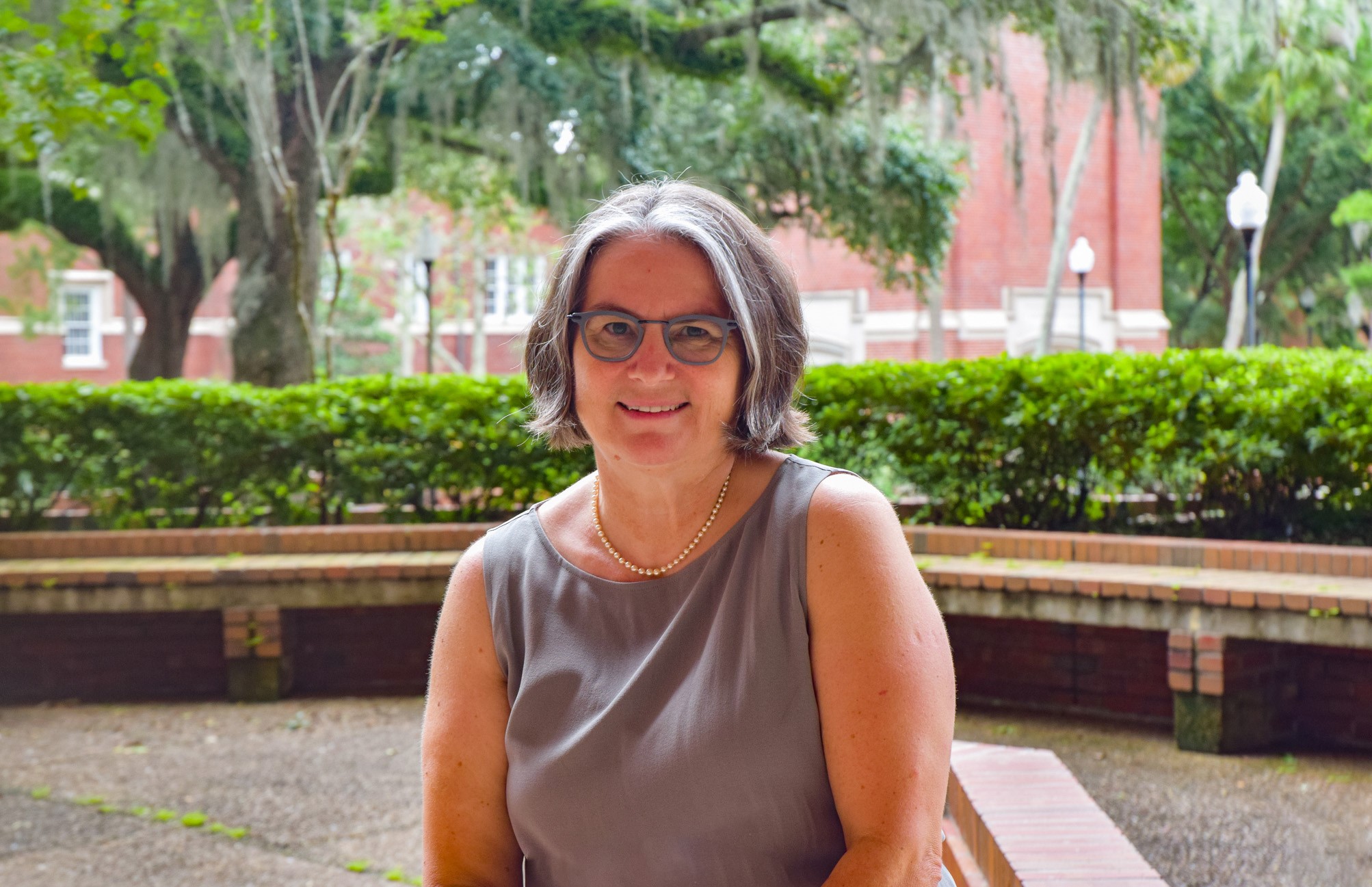
Barbara Mennel
Professor Barbara Mennel is the Rothman Chair and Director of the Center for the Humanities and the Public Sphere. She has been awarded the University of Florida Foundation Research Professorship (2018-21) and the Waldo W. Neikirk Professorship (2014-21). She is author of four books, including Women at Work in Twenty-first Century European Cinema (2019) and Cities and Cinema (2008, 2020). She has co-edited the volume Spatial Turns: Space, Place, and Mobility in German Literature and Visual Culture (Brill, 2010) and Turkish German Cinema in the New Millennium: Sites, Sounds, and Screens (Berghahn, 2012).
Faculty and students are engaging with AI on all kinds of levels and asking interdisciplinary questions about ethics, usage, and its history in their teaching and research. - Barbara Mannel
Center for the Humanities and the Public Sphere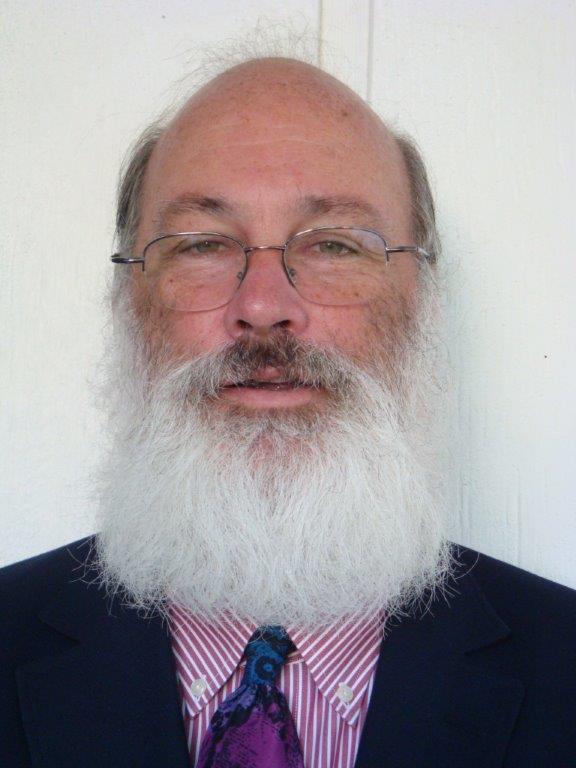
M. David Miller
M. David Miller is a Professor of Research and Evaluation Methods and the School Director for the School of Human Development and Organizational Studies in Education at the University of Florida. Dr. Miller chaired the development of UF’s prior QEP: Learning without Borders: Internationalizing the Gator Nation. He is also the Director of the Collaborative Assessment and Program Evaluation Services in Education, and currently co-Chairs the UF Task Force on Fairness and Equity in Assessment. His research is focused on assessment in higher education, psychometrics and evaluation including assessment issues in validity, reliability and differential item functioning. Dr. Miller is widely published in the area of psychometrics and assessment including two books on assessment --Measurement and Assessment in Teaching (11th Edition) and Educational Assessment in Higher Education: Theory and Applications-- and more than 90 refereed publications. He has been recognized as a Distinguished Reviewer of assessments by the Buros Institute.
Artificial intelligence has become an important part of our society. With machines having the capability to perform tasks that normally require human intelligence, it is essential that we as a society understand what AI solutions mean for meeting evolving human needs. In addition to the technical issues associated with AI, we will be responsible to security and ethical approaches to AI. Understanding the impact of AI on our futures will be central to our students in all majors as it impacts all people. - M. David Miller
College of Education
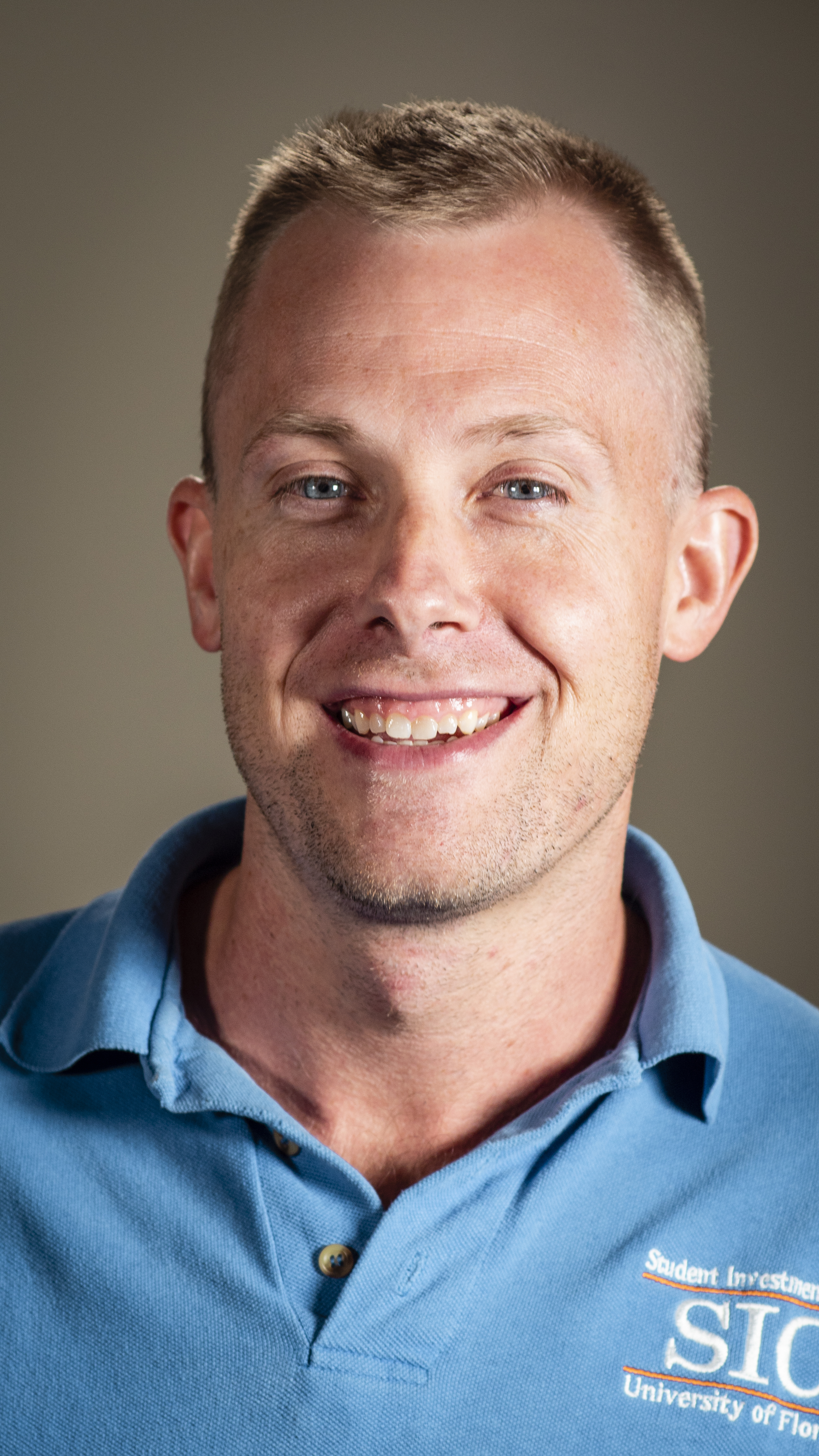
Chris Pinkoson
Chris Pinkoson is a Senior Instructional Designer with UFIT’s Center for Instructional Technology (CITT). Stepping out of the classroom eight years ago, Chris now facilitates the course design process with faculty across the university, as well as manages a wide array of instructional development opportunities offered by the CITT. He earned his Master’s degree in Educational Leadership at the University of Florida and through his professional experiences at the university decided to pursue the Graduate Certificate in Disabilities in Society.
Artificial intelligence allows for accurate and efficient responses to strategic decisions. For education, this can mean a more personalized and responsive approach to learning. AI allows for a targeted and adaptive instructional experience, tutoring that focuses on specific skills and deficiencies, and faster turnaround time for grading and feedback. Not only does this increase the quality of the educational experience for the student, it provides the instructor the opportunity to focus their time more intentionally. – Chris Pinkoson
Center for Instructional Technology and Training
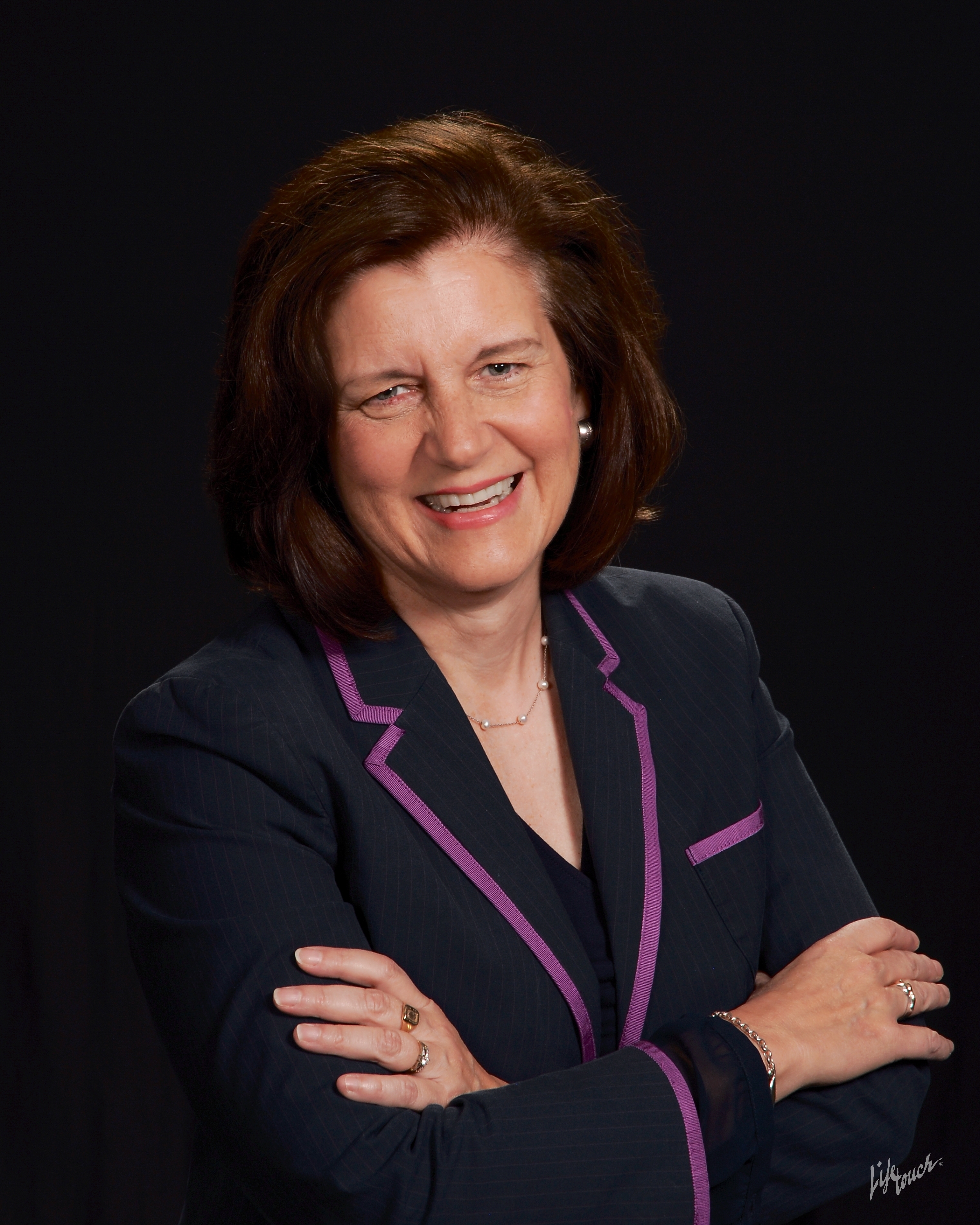
Margaret Portillo College of Design, Construction & Planning
In the College of Design, Construction & Planning, Margaret Portillo, Ph.D., FIDEC, is an Associate Dean and Professor. In this role, she is responsible for research and strategic initiatives in the college and has been facilitating the DCP AI working group and faculty searches. Previously, she served as chair of the college’s nationally recognized department of interior design. Her research activities on creativity in design and environmental color have been presented and published widely. She has received research and student mentorship commendations, including the EDRA certificate of excellence for innovative practice-based design research. Other leadership activities include service as Editor-in-Chief, Journal of Interior Design, garnering an IDEC merit award. Currently, she was appointed to Council of Interior Design Accreditation nine-member Board of Directors, representing practice, education, and the industry. Her undergraduate degree is in fine arts and psychology from Carroll University, and she earned a master’s and doctorate in design studies from the University of Wisconsin-Madison.
It is exciting to see the possibilities that Artificial Intelligence holds for elevating the environments in which we live: the spaces and places offering us joy and sometimes frustration. In my field and in the allied disciplines housed within the College of Design, Construction and Planning, I see firsthand the promise of AI in ongoing and nascent research and creative scholarship by faculty and students. Within the building design and planning fields, an onslaught of innovation fueled by AI is in play: yielding high performance buildings, devising more equitable transportation solutions with communities, delving into the ways we can adaptively respond to, anticipate and mitigate the impact of natural disasters. From urban centers to coastlines, AI can literally change our world. And yet, as many in the design community have noted, we hold the responsibility to use this tool judiciously by focus AI toward building inclusive and connected design processes and solutions. Indeed, my hope is to be able to help support this singular opportunity, not only with furthering DCP faculty and students’ pursuits in the AI space, but to use AI as a bridge to connect with others on campus and beyond to develop heightened appreciation, creation, and research on the spaces and places that people care about and thrive in around the planet. - Margaret Portillo
College of Design, Construction & Planning

Blake Robinson, Student member
My name is Blake Robinson, and I am currently a third-year finance student with a minor in real estate from Houston, Texas. I currently serve as the External affairs Vice Chair for SGAA, Assistant Treasurer for Florida Blue Key, and the Junior Class President. During my time at UF I have been thankful to not only be involved around campus through prominent organizations around campus but also in the Gainesville community. I plan on going into the financial sector after college where I hope to continue to be a leader and make a difference in the communities I am a part of.
Being at the University of Florida for three years I have seen that artificial intelligence is important in empowering students and faculty to go beyond the scope of what we believe is possible. Investing into artificial intelligence will allow our students to break the boundaries of research and solve real world issues that affect regular consumers and citizens. In an increasing digital world and a more globally connected community it is imperative that AI is a crucial pillar in higher education. Such research can allow students to solve problems in supply chain management, medical research, engineering, and decision making for small to large businesses. Overall, AI is important in higher education and if students are given the opportunity to learn more, than we will be able to contribute to a better working world for the future generation. - Blake Robinson
Warrington College of Business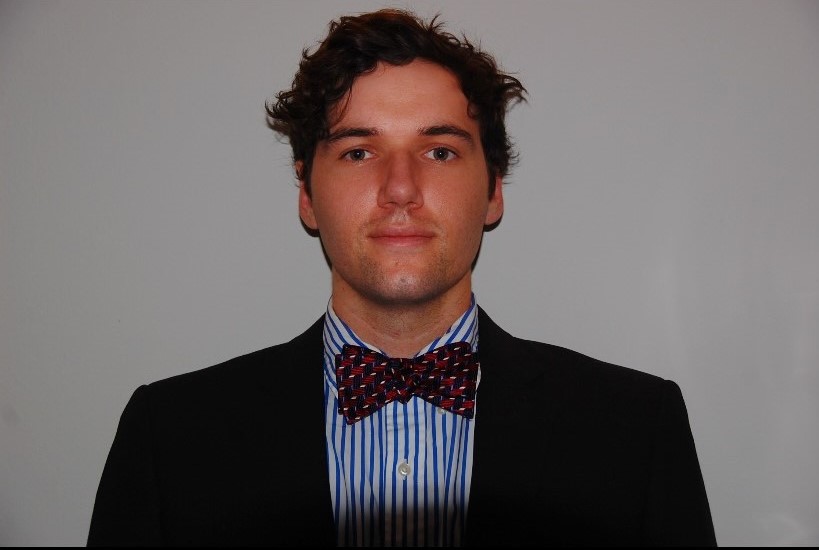
Cole Schafer, Student member
My name is Cole Schafer, a current PA-S1 at The UF College of Medicine. Before starting my journey of becoming a healthcare provider I worked in the field of healthcare informatics at a teaching hospital in Dallas TX. I was able to be a part of multiple projects within our department and got to see the impact technology had on medical services. Over the years, my passion for AI and machine learning has grown within this realm of medicine. Specifically, I’m interested in the use of AI in diagnostic medical imaging. I plan to one day use my tools as a medical provider and programmer to further advance healthcare systems.
I believe that AI is an extremely important topic that should be introduced across all levels of education. Nearly every industry utilizes AI and machine learning by automating decisions from data collection and analysis. The insights that these tools are able provide are limitless. It should be of upmost importance to introduce AI within the education system because it gives the learner the tools to solve some of the world's most difficult problems. – Cole Schafer
College of Medicine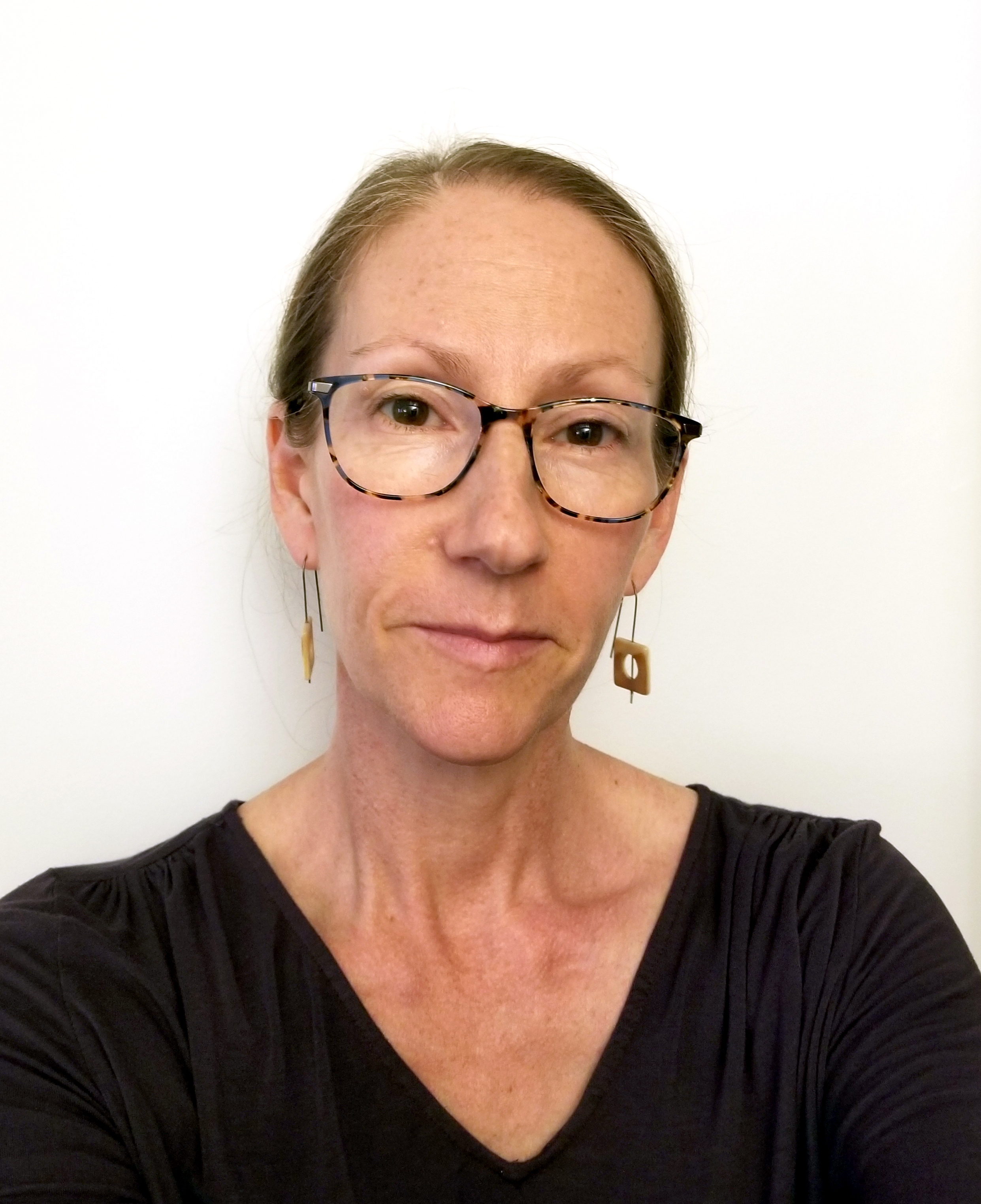
Jennifer Setlow
Jennifer Setlow is the Associate Dean for Academic and Student Affairs in the College of the Arts. She is responsible for overseeing all aspects of student affairs for the college, guiding work with the New World School for the Arts, and overseeing the tenure and promotion process, among other things. With a background in lighting design, Setlow’s work has been seen at venues that include La Jolla Playhouse, The Old Globe, Berkeley Repertory Theatre, Indiana Repertory Theatre and Syracuse Stage. She holds a BA in theatre from Swarthmore College and an MFA in lighting design from UC San Diego.
As the University of Florida works to embed AI across the campus and the curriculum, and as use of artificial intelligence grows, it is critical to ensure that our students are graduating with at a minimum a grounding in the deep ethical issues that exist around how and where data is gathered, and how artificial intelligence is or can be used. Artificial intelligence as a tool offers tremendous opportunities across multiple fields, but if we do not prepare our students to critically examine this tool, particularly through the lens of their own discipline(s), we will only add to the problem. - Jennifer Setlow
College of the Arts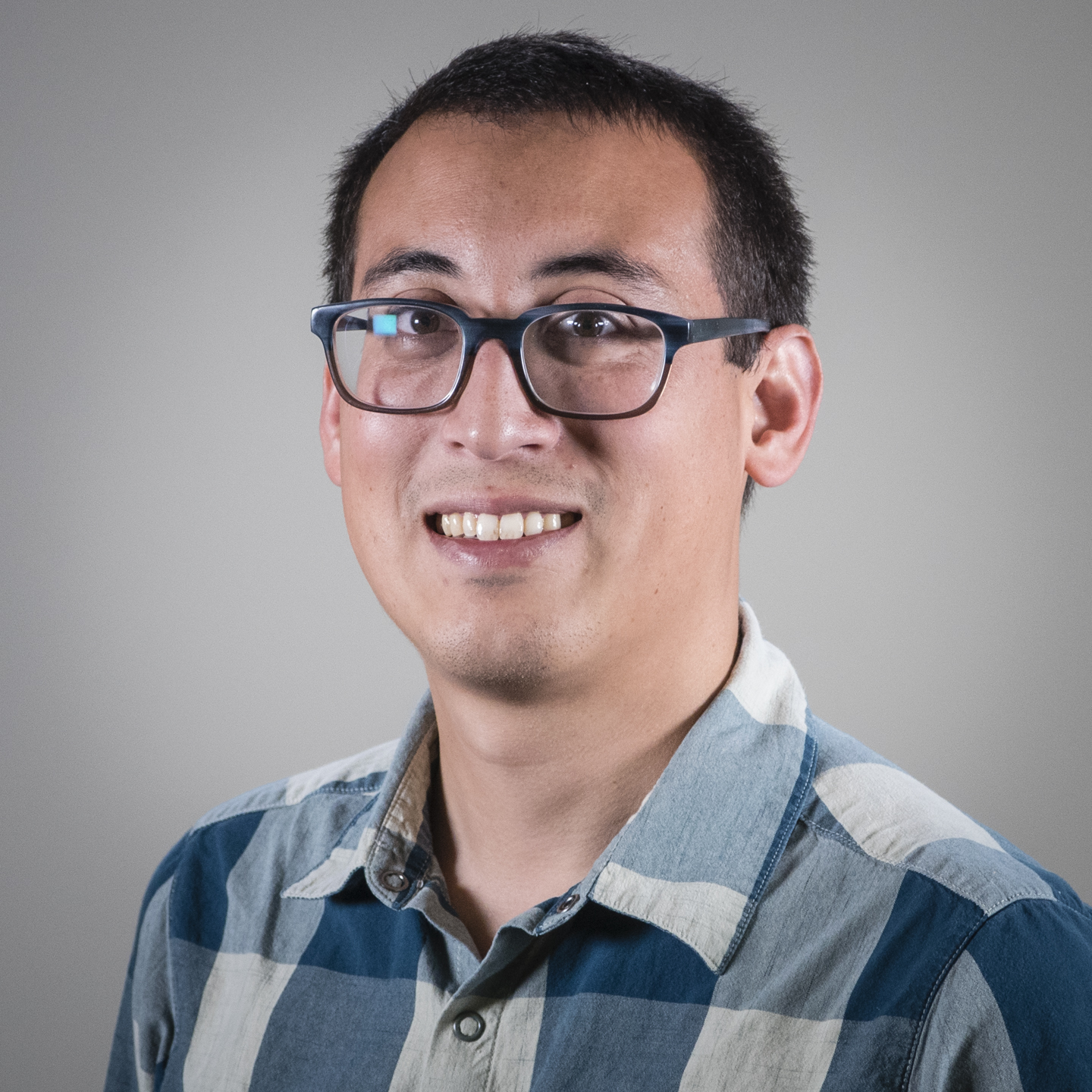
Chris Sharp
Chris Sharp is an Educational Technologist in the UFIT Center for Instructional Technology and Training. Chris explores emerging technologies and how they can be applied to improve teaching and learning across many disciplines by working with instructional designers and faculty. He enjoys finding innovative and creative solutions to teaching or learning challenges using web technologies, XR applications, or AI tools. Chris has a BS in Computational Physics and a Master’s in Teaching from the University of Arkansas.
Understanding the implications of AI in the workforce, academics, and research is important for our students and faculty. Enabling student success at UF and beyond requires us to use AI ethically while also providing access to the tools and knowledge for all Gators. - Chris Sharp
Center for Instructional Technology and Training
Shenice Smith, Student member
Shenice Smith is pursuing a Master of Education in Marriage and Family Therapy while supporting UF community outreach programs as a GA in the Division of Student Life. She is a community advocate with expertise in Corporate Human Resources across a variety of industries such as banking and business services. Shenice has partnered with community organizations to support workforce development and financial and mental health literacy initiatives that serve low-income and minority populations. She holds a bachelor’s degree in Business Management and an MBA in Finance. She is a proud member of Alpha Kappa Alpha Sorority Inc. and a small business owner.
As AI enhances our ability to interpret data, enhance our current systems and processes, and discover new tech capabilities we must be intentional on how we expose and educate our society. AI can create accessibility where there have been decade old barriers, transform how we consume natural resources, and enhance health care knowledge. I am looking forward to finding ways to incorporate AI in community programming, mental health literacy, and youth education to ensure that all communities can benefit from the advances of AI and have a voice on its impact. - Shenice Smith
College of Education
Amy L. Stein
Amy L. Stein is the Associate Dean for Curriculum and a Professor of Law at the University of Florida Levin College of Law, nationally recognized for her research on the intersection of law and technology, both with respect to artificial intelligence (AI) and emerging energy technologies. Her recent scholarship explores the possible uses of artificial intelligence to address climate change challenges, as well as the viability of tort defenses for injuries caused by emerging AI. She has presented her work across the country and internationally, in both academic and policy forums. She has been on faculty at GW and Tulane Law Schools, as well as practiced with a global law firm in DC and Silicon Valley. She is a graduate of the University of Chicago (AB) and the University of Chicago Law School (JD).
Levin College of Law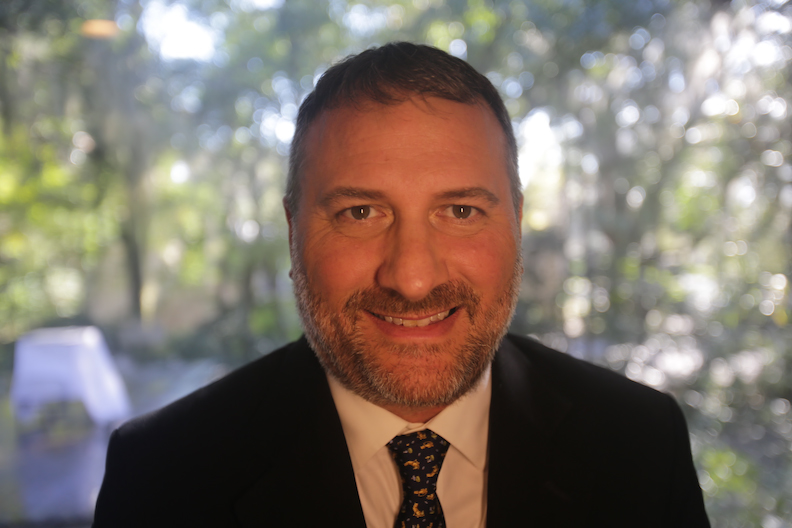
Rick Stepp
Rick (John Richard) Stepp is Professor of Anthropology and a core faculty member in the Tropical Conservation and Development Program. He also serves as Director of UF Quest 3, the forthcoming university-wide experiential learning requirement for undergraduates. He is actively involved in community outreach and international education opportunities for students. He is an affiliate of the School of Natural Resources and Environment, the Florida Museum of Natural History and other interdisciplinary centers focused on human-environment interactions. He has conducted research over the last two decades throughout the tropics, especially in the Maya Forest and in the Greater Mekong Region of Southeast Asia.
Artificial intelligence (AI) is a powerful set of tools and technologies that holds the possibility of improving life on this planet and beyond. UF is rapidly becoming a leader in AI and is bringing together a diverse and creative group of faculty across many disciplines that will surely lead to many important discoveries and technological innovations. This process will also requires human experience, knowledge and, most importantly, wisdom to ensure that it is properly implemented and to avoid unintended consequences. Experiential learning (EL) can help bridge the gulf between technology and humanity. It will be exciting to see how EL paired with AI initiatives can lead to the best practices and outcomes. – Rick Stepp
College of Liberal Arts and Sciences
Aaron Thomas
Dr. Aaron Thomas is Associate in Data Science within the Enterprise Reporting & Analytics team at UFIT with an emphasis upon student success and course analytics. Recent work includes deploying machine learning models and educational data mining to optimize and route student services along with evaluation of program efficacy. Dr. Thomas received a PhD in Curriculum and Instruction with an emphasis in educational technology from the University of Florida and was a post-doctoral researcher at UF’s Online Learning Institute with a focus on analytics. He was a Fulbright Fellow (Bulgaria) and has received funding from both NSF and NEH.
As an educational researcher and data scientist at UF, there is great opportunity to leverage institutional data and AI to support student success, course quality, and the mission of the University. The QEP task force is a wonderful opportunity for faculty and staff to collaborate on building a foundation for both student and faculty preeminence in the area of AI. – Aaron Thomas
Enterprise Reporting and Analytics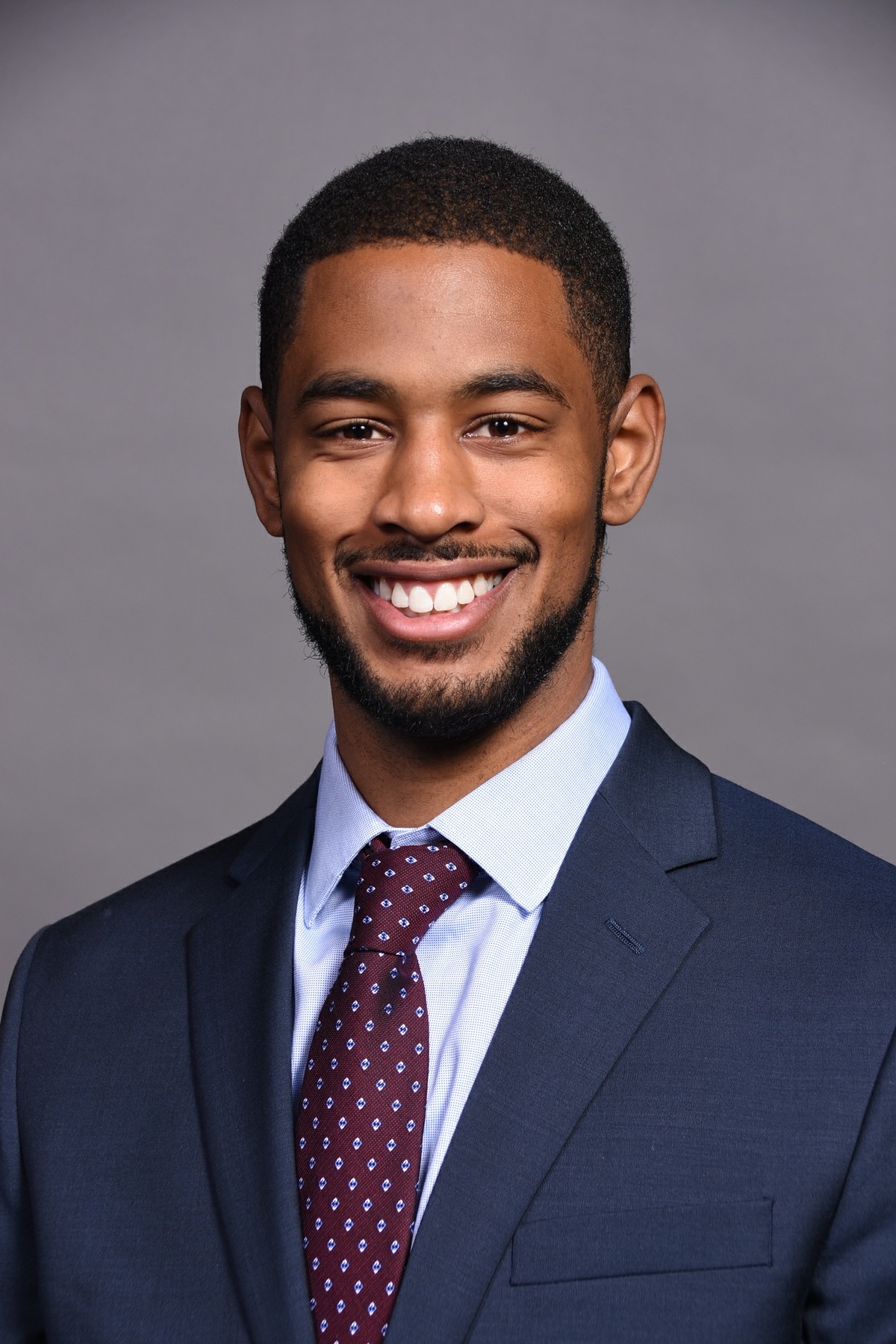
Lane Washington
Dr. Lane Washington (he/him) serves as the Director of Strategic Initiatives within the Division of Student Life. Within his professional role, Dr. Washington engages in programs dedicated to access concerning precollegiate students interested in college, graduate student preparation work, international partnership opportunities, and staff development. Lane’s research interests focus on race, ethnicity, and social justice, specifically studying the experiences of Black students at predominantly white institutions.
Division of Student Life
Michael Weigold
Michael Weigold is a professor in the Department of Advertising. He teaches courses related to advertising as well as subjective well-being and happiness. He is also the author of a widely adopted text in advertising courses around the world. He previously served as associate dean for undergraduate affairs and enrollment in the College of Journalism and Communications and as director of the online master’s program.
AI is as transformative in advertising and marketing as it is in other areas of our lives. Communication students can no longer afford to ignore the impact that it will have on their lives and careers. I am excited to support UF’s initiative to increase literacy and competencies in our university around this critical topic. I believe that doing so will ensure the university’s preeminence as a great 21st century educational leader. - Michael Weigold
College of Journalism and Communications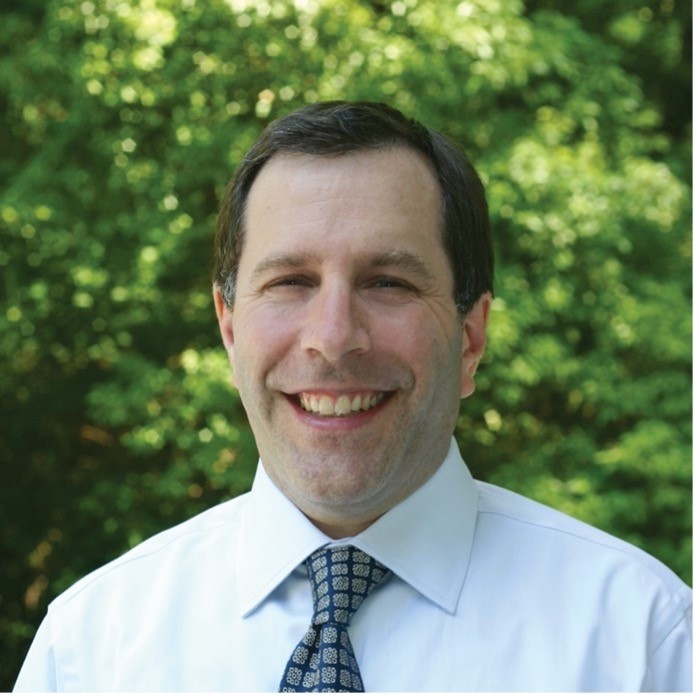
Andrew Wolpert
Andrew Wolpert is the Director of UF Quest and an Associate Professor of Classics. After receiving his PhD from the Committee of the Ancient Mediterranean World at the University of Chicago, he taught first in the Department of the Classics at Harvard University and then jointly in the Department of Classics and the Department of History at the University of Wisconsin. In 2006, he joined the faculty of the University of Florida. Wolpert has written extensively on questions concerning the politics, society, and culture of democratic Athens, and he led the way in applying theories from memory studies to research on ancient Greece and Rome. Throughout his academic career, he has also been a leader in undergraduate education. As Director of UF Quest, he has helped faculty reimagine the undergraduate curriculum, develop innovative courses, and implement major changes to UF’s general education program.
New technologies create new ways to collaborate and new ways to explore our world. They can break through barriers, and they can help us solve problems that seem intractable. But how do we open ourselves up to these new opportunities and apply these new resources constructively so that they serve the greater good and the world changes for the better? How do we provide students with the tools that they need so that they can thrive in a world that is rapidly changing? Artificial intelligence has an enormous potential to advance the mission of the university. This is why it is crucial for UF to develop a quality enhancement plan that focuses on AI. - Andrew Wolpert
UF Quest